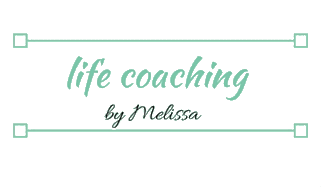Before we discuss what the 3 principles are, I would like to talk about what principles are in general. A principle is an underlying fact of how nature works.
The principle of gravity says that what goes up must come down. Does anything change if I don’t believe in the principle of gravity? Gravity doesn’t care. I know this because no matter how many times I throw an apple in the air, it falls back to earth. A principle has nothing to do with what we believe. Whether or not we believe in the principle, or are even aware of it, it still exists.
How does it help us to know about principles?
Let’s go back to the example of gravity. Even though Newton had discovered this principle, we realized that human beings could not fly.
But we also knew that certain species of animals could fly. It wasn’t until we understood the principles of aerodynamics that we were able to work within those principles and make them work for us to counter the effect of gravity.
Then we were able to build airplanes and spaceships. Before we knew enough about gravity and which principles to use to counter its effects, we also tried to build airplanes, but we were never successful. We never knew what we did right or wrong when we could not keep an airplane in the air.
Principles gave us a starting framework from which to build, and the correct starting framework is the key to building anything.
If I try to build a building with the incorrect foundation, the building will collapse. Everything we create must start with the correct understanding of the principles at work.
One of the things that I recently discovered was that principles do not only operate outside of ourselves in nature. It should not surprise us to know that human beings were also created with psychological principles.
To the extent that we understand these principles, we can build our happiness and have a meaningful life.
What are these psychological principles?
There are three: MIND, THOUGHT and CONSCIOUSNESS.
Keep in mind that these principles are just metaphors. We are always looking to see behind the metaphor.
We are looking to understand what is before thought, what is before experience. Or in different words, what is the source of thought, or what is the source of our experience?
I had always thought it was my circumstances. What I see now is that that is not true.
MIND:
Mind is the formless energy behind creation. Mind holds all of what exists in a potential state.
When we create something, for example a table or chair, we are taking formless energy and expressing it through a form.
Some people refer to Mind as G-d. After all, what is it that makes the heart beat and the blood flow? It is this energy. (Others understand the principle of Mind to be divine in essence, but not the whole of what G-d might be, G-d ultimately being beyond any description.)
THOUGHT:
The principle of Thought is the formless energy that takes form through thoughts.
Thought is a divine tool that has the potential to allow us to see life as we wish. Where does Thought come from? Thought (and Consciousness as well) comes from the first principle of Mind.
Thoughts can come through our higher self and be helpful or true. Or they can come through the ego or the body and be habitual, limiting or unhelpful thoughts.
Thoughts we have carried with us our whole lives, thoughts from our parents or our culture, can be misleading and constricting. Thoughts, freeing or limiting, helpful, or unhelpful, are always the seed of our experience in any circumstance.
Let me give an example.
One person grew up in a family where, if it was raining, they never went out unless it was an emergency. Another person grew up in a house where they could go out if it was raining.
These two different people grew up with very different thoughts about a rainy day. Which one is right?
Each one thinks she is right, but the truth is that neither person is right or wrong. Our thoughts about the rain (and as we will see, our attachment to these thoughts) are the only things that would cause us to go out in the rain or stay in.
The rain itself is neutral; it’s just doing what it was created to do. But one person thinks of it – and thus experiences it – as wet and cold and maybe dangerous. The other person doesn’t think of it like this; she just experiences it as rain, not something that she needs to stop her life for, and may in fact enjoy.
The important thing for us to understand is that both people can allow the way they think of rain – or the way they think of anything – to change, and thus change their experience.
Let’s use another example.
Your child comes home in a really bad mood and the first thing she does is say something nasty to you.
You could think, ‘No child of mine should ever come home and speak that way to me’, and feel really angry and end up yelling at her.
Or you could feel compassion for her and quietly ask her what’s bothering her.
Finally, you might feel simply curious about what might have happened in school today that has upset her.
The point is that if circumstances dictate how we feel in any given situation then we should not have been able to describe three different reactions to the same situation.
What determines these three different reactions is the thinking about the circumstance and, as we shall see, our attachment to that thinking.
In the first example, it is your thought that she has no right to speak that way that generates a feeling of anger.
In the second example, it was your thought and your attachment to the thought that something must be bothering her which generates compassion.
In the third situation you thought, ‘I wonder what happened in school’, and so you felt curious. All three emotions and reactions were different because the thinking was different in each case.
CONSCIOUSNESS:
It is through the principle of Consciousness that what we think becomes experience.
But how does this happen? We cannot feel or experience or even perceive any circumstance unless we have a thought about it and unless we attach ourselves to that thought through our consciousness.
The way we attach ourselves to a thought is by believing the thought.
Consciousness begins to take form and express itself first through awareness. Often, we are not even aware that we have had a thought that is defining our experience through our consciousness.
The beginning of choosing our experience is the awareness that we have attached ourselves to the thought behind it.
Movies are good metaphors. When a person sees a movie they might laugh or cry or be bored. But nothing real is happening except different lights being projected onto a screen.
We have attached ourselves to certain thinking and therefore we cry at a sad movie and laugh at a funny one.
To use an extreme example, if a person is in a coma (G-d forbid), one of the ways a doctor can tell if the person is still alive is if they have brain waves.
This fact suggests that even a person in a coma has thoughts. However, if they are not conscious they can’t experience their thoughts because they cannot attach themselves to their thoughts without consciousness.
Think about a refrigerator: the refrigerator needs the plug, outlet and compressor in order to work.
If I take the plug away, it doesn’t work. If I have the plug but take the outlet away, it won’t work. And if I leave the outlet and take the compressor away, it also doesn’t work. All three components are equally important to having a working refrigerator.
The Principles are no different. Without Mind, there is nothing to give us life and energy at all.
If I take Thought away, then I am basically a zombie because I have no way to interpret my circumstances.
And if I take Consciousness away, then I am oblivious because I have no way to experience my thoughts.
These three principals are active all the time. Through them, each person individually experiences and interprets his or her world.
Remember, these principles are active whether we realize it or not. The advantage of realizing them is that life gets a whole lot easier to manage and much more meaningful.






Leave A Comment